You know when people share stories of times in their lives when all the puzzle pieces fell together? This feels like that time for me. Not to dismiss the immense amount of planning, networking, blood, sweat, and tears that led to this next chapter, but the timing and favorability of this opportunity feels a bit divine.
I started this substack newsletter for a few reasons. I have really perfected the introverted art of “ghosting”. I am awful at reaching out and staying in touch with people because small talk is draining for this ADHDer. And as an introvert who is about to move to rural Maine, the urge to isolate is strong. But this is not because I don’t appreciate my community. This newsletter is a love letter to my community telling you—please continue to be a part of my life. It is also an invitation to anyone who just wants a personal, vulnerable, raw account from a farmer starting a farm. So please feel free to share my substack and invite others in. Please comment or email me when you feel inspired.
In every newsletter there will be updates on the farm. For those of you who love logistics—this part is for you. I will share the details of starting a business, reclaiming farmland, and building infrastructure. Also, in every newsletter there will be some editorial. If you know me (you don’t have to know me well), you know I have a lot of opinions. I feel deeply and I tend to share about how my personal experiences fit into a bigger picture. This newsletter will be a space for me to share how my perspective as a queer woman starting a small-scale sustainable farm in rural Maine fits in the bigger picture of agriculture in this country.
So let’s get to it. In order to appreciate just how exciting this opportunity to start a farm is, you’ll have to read how I got there first.
The Decision to Start a Farm
A couple of years ago, I committed to a career managing non-profit farms instead of starting my own farm. This was a decision I made to ensure financial stability, which starting my own farm would not. I was willing to sacrifice my autonomy on the farm and equity in a piece of land for a steady paycheck and some semblance of healthcare benefits. I would work as an employee for one or several of the many non-profit farms abundant in Eastern Massachusetts long-term.
First, I worked at Gaining Ground which was a well-funded non-profit growing food to donate to food pantries in MA. I left Gaining Ground in 2022 because I was making $45k a year without benefits as a manager and an integral part of their operation—I couldn’t justify the amount of work for the pay and lack of support. I moved on to manage another farm, but a year after I moved to the farm and led their farm into their most successful year yet, the Trustees of Reservations shut down three out of the five farms they own. During the lay off, myself and several other farmers had 30 days to move out of our houses on the farm and leave the 150 acre farm that we gave ourselves to. Since then, the three farms that the TTOR shut down sit fallow with no plans to be farmed anytime soon.
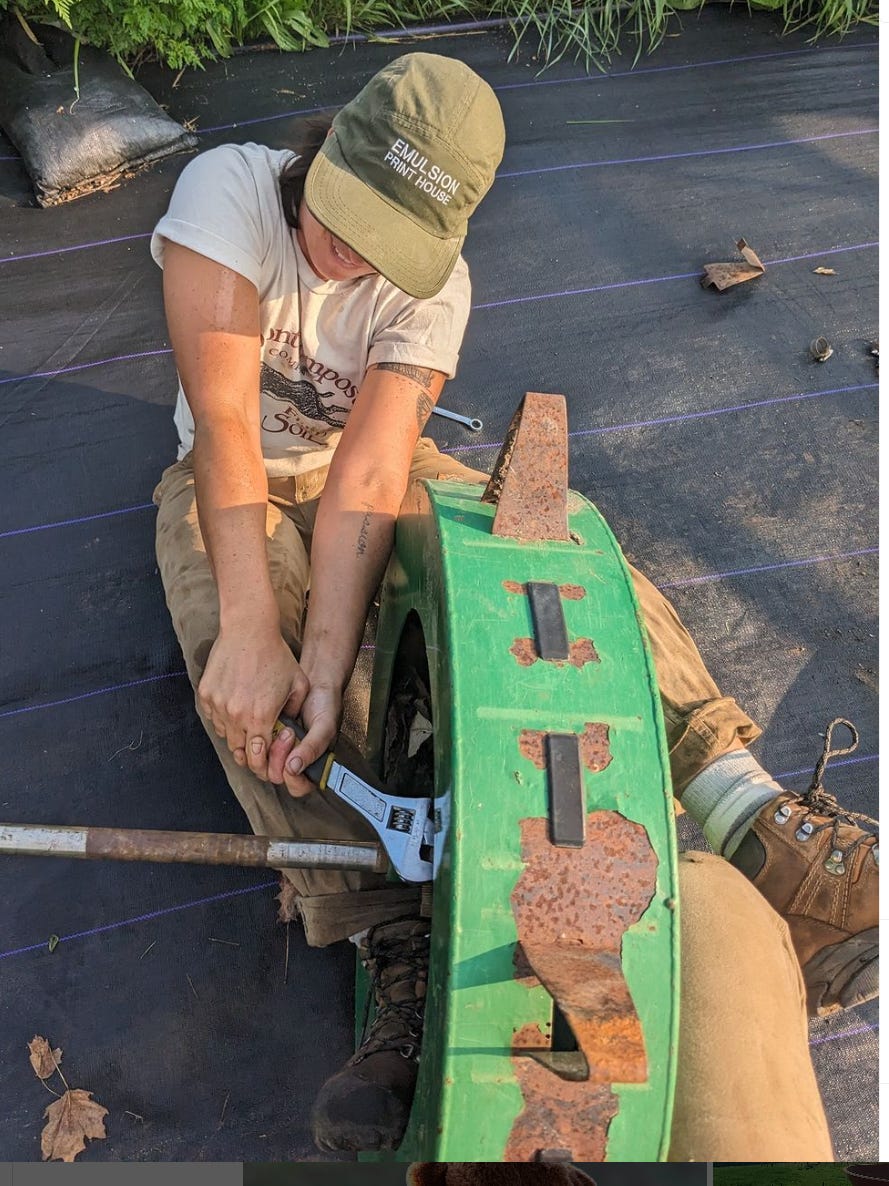
After two failed attempts to establish myself at a non-profit farm long term, an attempt to bring stability to my farm career, I took some time off from farming to reevaluate this career plan. The pain of leaving farms and feeling disposable inspired me to revisit the idea of starting a farm.
There is a bigger issue here. Actually, there are so many bigger issues here, too many to go into detail. After fifteen years of farming (and being pretty damn good at it may I add) why are my only options:
1. to buy a farm and live in poverty for the rest of my life or
2. farm for non-profit organizations that can make more money fundraising than they can selling food, but practice an abundance of power over the farmers and still don’t pay a living wage?
The short answer is a racists agricultural system that was designed to survive on slavery, tenant farming, and migrant farmworkers. The long answer is in a future newsletter.
Another piece that led to this decision is the passing of my father, Andrew Espinosa, in October 2024. My dad passed after seven years of cancer treatments, trials, and surgeries. I was close with my dad and knew that I wanted to be by his side in his final weeks. I also knew that if I owned my own farm, I would not be able to afford to leave for an extended period of time to do this. Not many good things came out of my experience working for the Trustees of Reservations but one good thing was Paid Family Medical Leave.
I’m sure many can relate to the uncomfortable feeling of relief and liberation after a loved one you cared for passes. Of course, if I could choose, I would choose to have him here. But when you see a loved one suffering, it dominates your spirit and time. I am relieved that my dad is no longer suffering, and I am relieved that there is peace in my life making space to think about new adventures.
The Land Search
So after losing my job and my father, I decided to take a step back from managing non-profit farms and spend the season aggressively applying for farmland. My goal was to purchase a piece of land or commit to a lease-to-own agreement that would allow me to trial a piece of property with the promise of the option to purchase in the short term. I knew I wasn’t willing to lease farmland without the promise of tenure because I know too many farm peers who put everything they had into building a productive farm only to lose their lease and any equity in the soil along with it.
At different points in my farm career, I have looked for farmland both in North Carolina and Massachusetts. I’ve put letters in mailboxes, updated FarmLink profiles in multiple states, networked with Extension agents, and scoured the internet for listings to find opportunities. This year’s search was more grueling than previous attempts. 7 business proposals, ten farm visits, 4 rejected offers, many high hopes crushed and tears later, I am here.
I knew to expect rejection as everyone does when buying their first property. But buying a farm is not like buying a home. Every offer includes a purchase offer, but it also includes a business proposal specific to the property, soil tests, letters of recommendation, a cover letter and resume, and not to mention all of the financial paperwork. But let’s be clear I am not complaining. Farmland is so valuable. People should be jumping through hoops to prove they are worthy and capable of using the farmland to feed people. What I didn’t expect was to do all of this work to prove I was a strong farmer capable of a building a thriving farm business, only to be outbid by wealthy corporate refugees who have never managed a farm before.
A corporate refugee is a person who worked a corporate job until they were burnt out and seeking a more meaningful life on a farm. Don’t get me wrong, corporate refugees have every right to farm. And when the average age of a farmer in the U.S is 58 years old, I am all for more people farming. But how was I ever going to compete with people who make at least four times my salary?
Stahl Farm was brought to my attention when the current owners posted a listing on New England Farmland Finder, which is an online forum connecting landowners to farmers. It was the break I was looking for. The landowners were a gay couple with the means to buy this farm and the intention of leasing the land to a fellow queer farmer that values community and sustainability, but did not have the means to fund such a project (that’s me!)
After years of being discouraged by the system, I was hopeful. My now landlords are everything I could have dreamed of and more. They intentionally used their privilege to subsidize my dream because of our shared values and identity as queer people. Not only did they create this opportunity, but they are doing it in a way that prioritizes my autonomy and trusts my skills and capabilities.
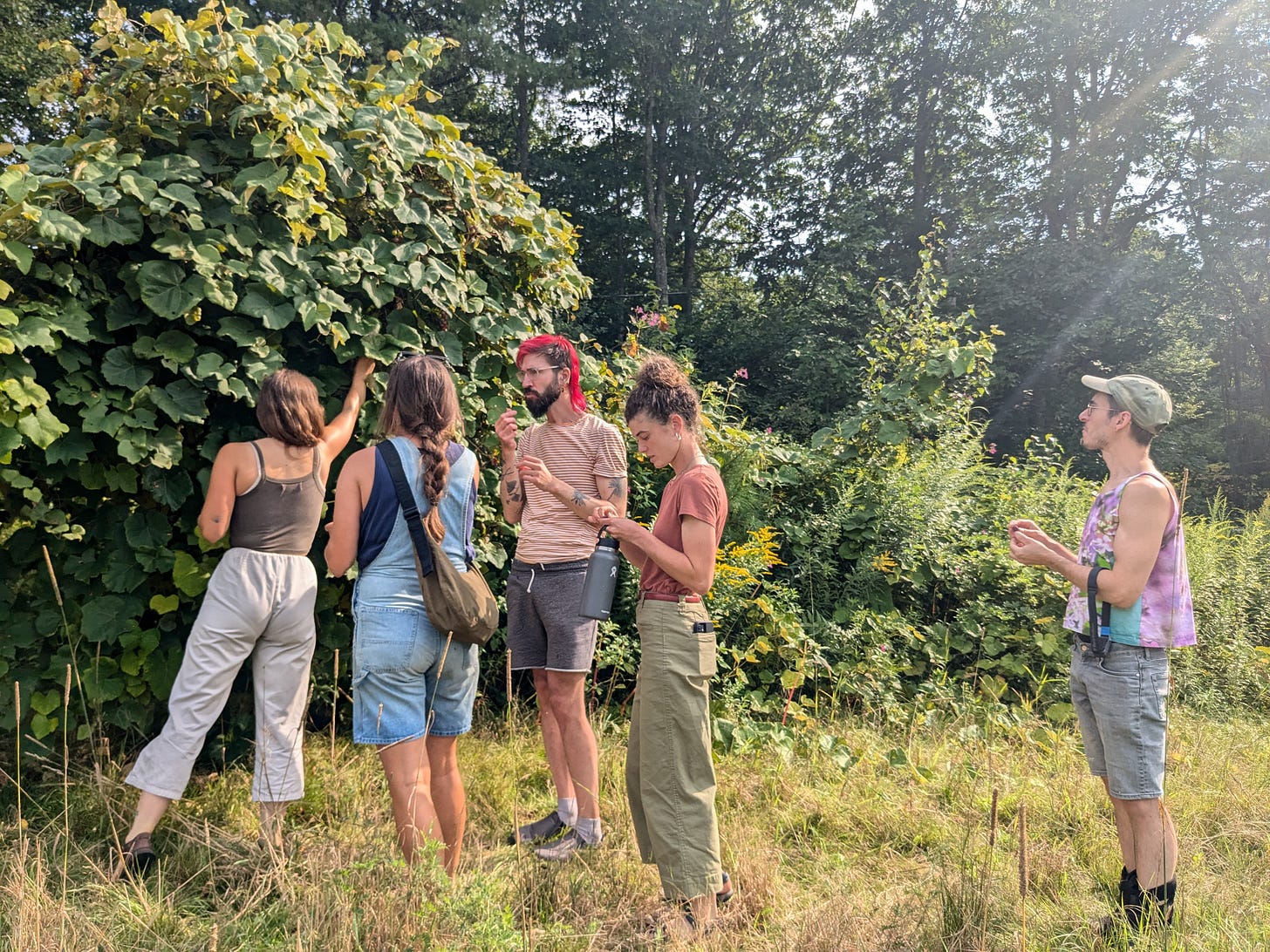
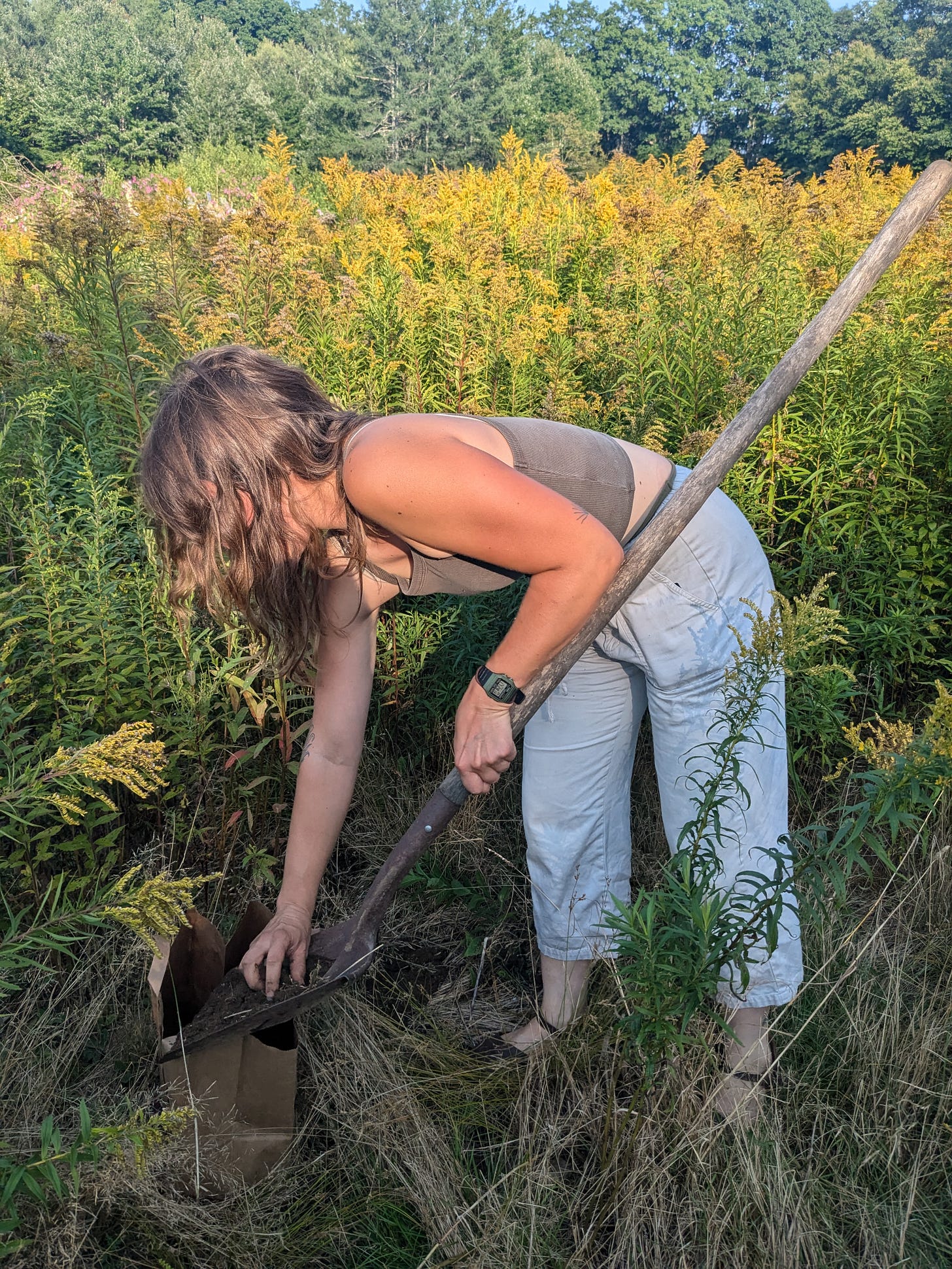
The Farm
In January 2025, I will move into a house on a 13-acre piece of land in Waldoboro, Maine.
Meet Stahl Farm. This is her current name inherited for several generations. However, I do plan on renaming the farm to fit this current iteration of its life. The farm name is TBD…maybe I’ll poll you all on some options soon. Stahl Farm is a beautiful 13-acre farm in a small sleepy town in Mid-Coast Maine. An old Cape style house and former residence of the town historian, Jasper Stahl, her bones are strong and hopefully not haunted. She has a two-piece barn and a well-kept and renovated 3-bedroom, 2-bathroom house. The land has not been farmed for many years and will require a year or so of work before the land is productive.
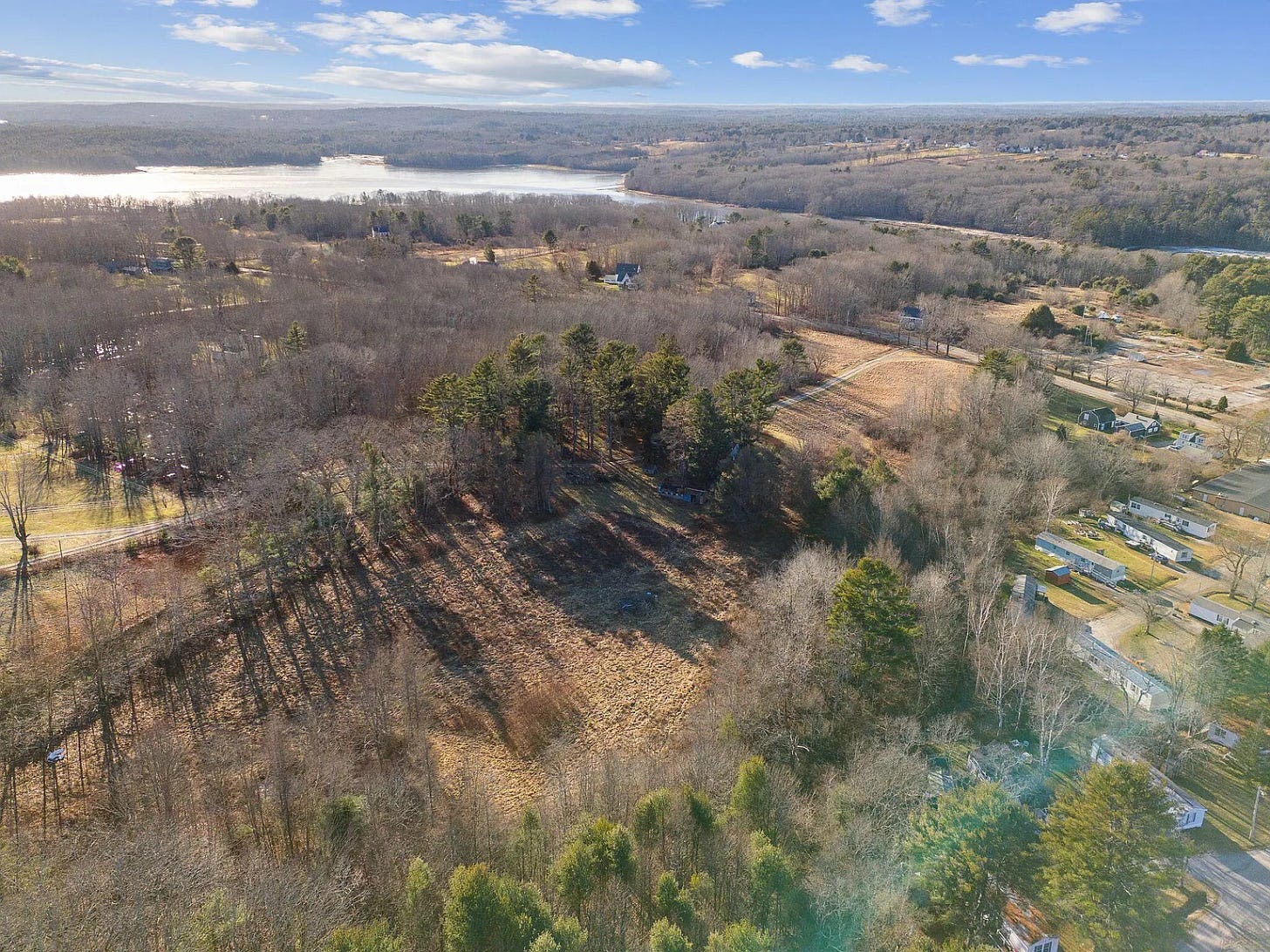
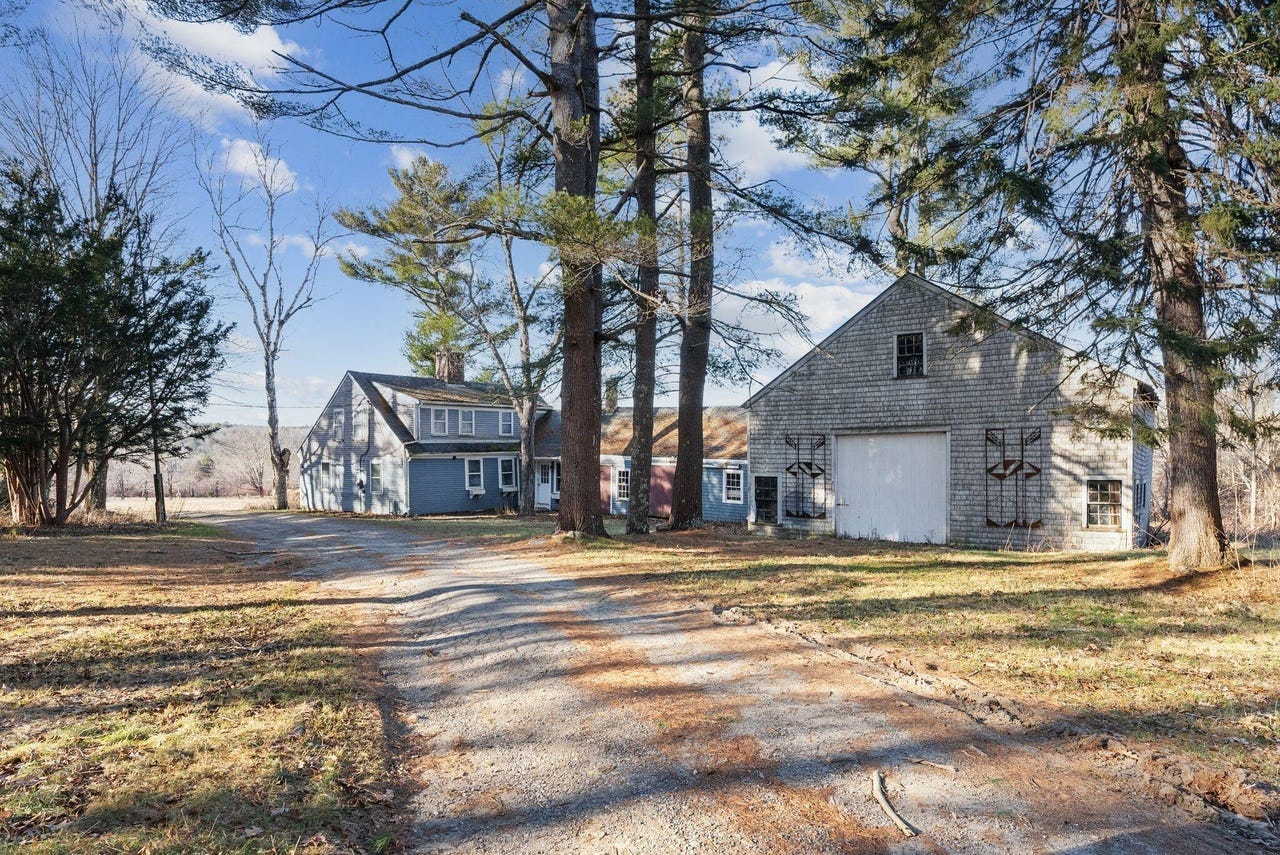
My plan is to spend the next couple of years reclaiming the land and building infrastructure to support a farm business. While I am preparing the farm for production. I will work as the Farm Manager at Veggies to Table in Newcastle, ME. This is a non-profit farm that grows vegetables and flowers to donate to neighboring folks experiencing food insecurity. This job will allow me to continue farming, building community, and have some financial stability while I reclaim Stahl Farm.
I will fund the purchase of the property in a year or two using my personal savings, an inheritance from my father, and hopefully a generous mortgage with Farm Service Agency. I will raise the start-up funds for the actual operation of the business using business loans, crowd sourced donations, and investments (who will get their dividends in the form of vegetables, flowers, and dinners).
While I say that “I” am starting a farm, my intention is to make it a collaborative venture. Collaboration could look like bringing in other farmers to diversify production. It could also look like collaborating with artists or other business enterprises to operate on shared land and infrastructure. Conversations with potential collaborators are currently happening slowly and intentionally. What I know for sure is that I intend to use the privilege of this opportunity and my desire to exist in close community with others to guide the future of the farm.
Circling Back
I am sure in reading this newsletter, you are leaving with a lot more questions than you are answers. I will reassure you that in the coming months there will be newsletter topics on funding the farm, reclaiming the land, land access and ownership, the Waldoboro community, business models, and much more.
But for now, let’s celebrate that the puzzle pieces really did fall together.


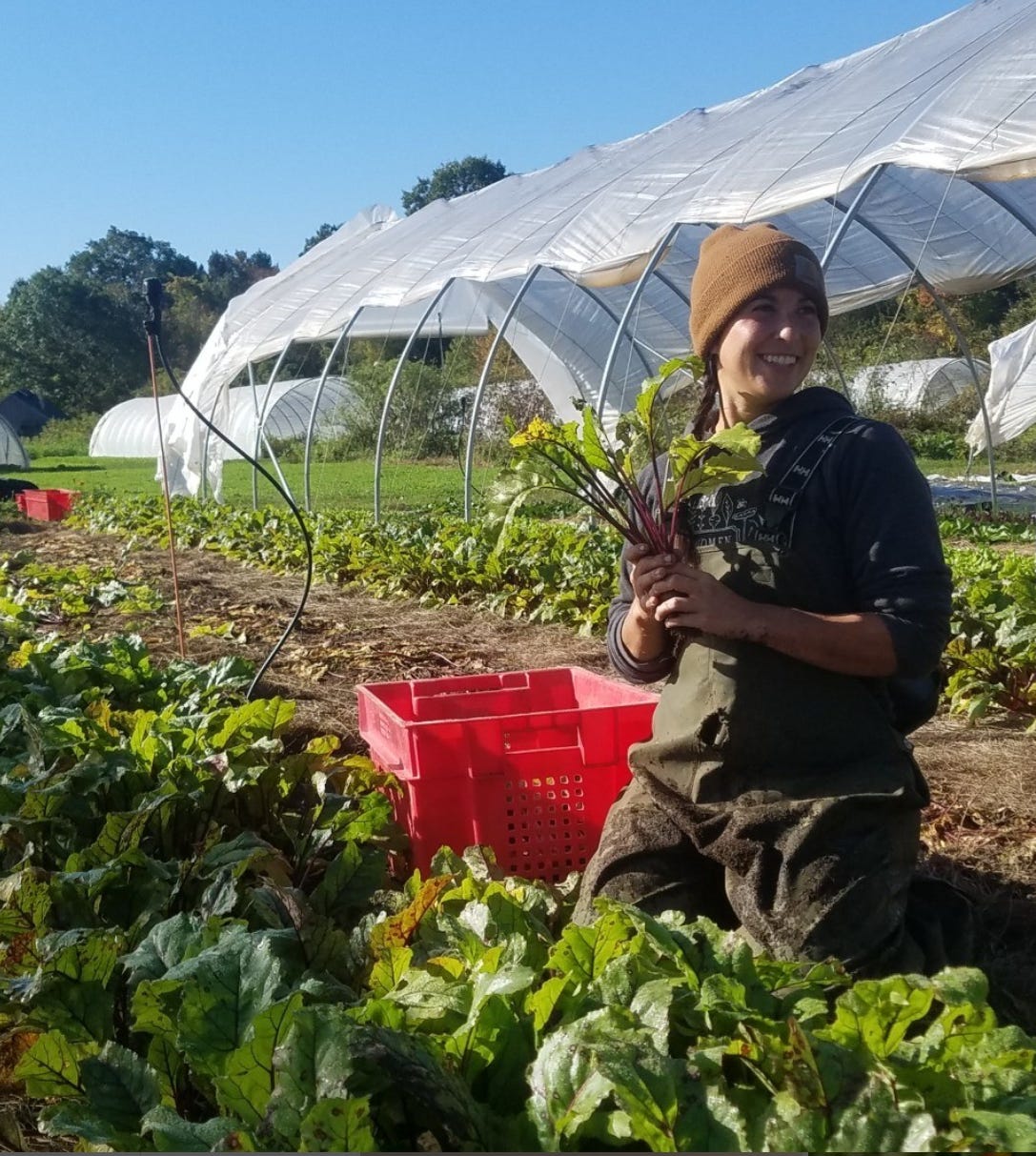
Wahoo! Glad to see you’ve moved over here and that I saw your story before you left instagram. Can’t wait to see what you accomplish. The land looks magical. I’m excited for you!!
So exciting. And scary. You got this ❤️